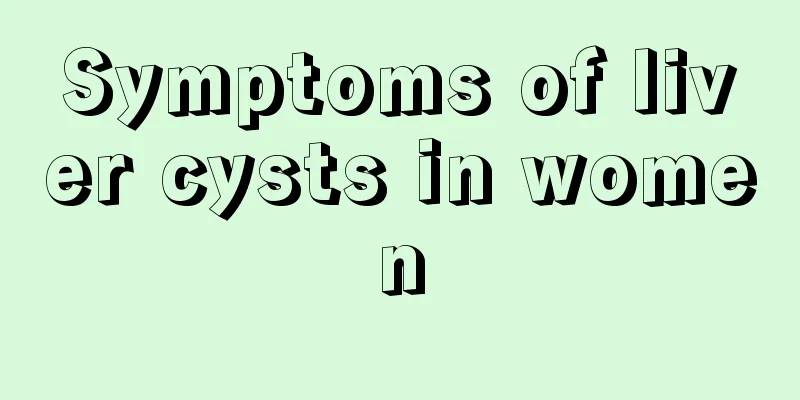How to avoid cholestasis when having a second child?

|
With the opening of the second-child policy, many families choose to have a second child. Having a second child is exciting, especially when the due date is approaching. Every pregnant mother does not want to have any abnormalities during pregnancy. However, for older pregnant women, there are various risks during pregnancy. High bile acid is a very common phenomenon. How can the second child avoid this phenomenon? How to avoid cholestasis during second pregnancy? Cholestasis of pregnancy is a condition that occurs only during pregnancy and disappears after the pregnancy ends. Before jaundice appears, there is only itching, and the jaundice is mostly mild or moderate, much milder than the itching. Generalized itching first appears in the middle and late stages of pregnancy, and is more severe at night, without specific rash. Symptoms: Itching all over the body first occurs in the second and third trimesters of pregnancy, which is more severe at night, and there is no specific rash There was no history of hepatitis or contact, no gastrointestinal symptoms or liver enlargement, and no percussion pain or tenderness. This must be noted as it is very harmful to the fetus and can easily cause premature birth, low birth weight, fetal intrauterine distress and neonatal asphyxia. Pregnant women should seek medical attention in time if they experience skin itching. Before itching occurs or serum alanine aminotransferase increases, serum conjugated bile acid will increase first, which is an early reliable indicator. There is currently no specific drug treatment. In order to prevent postpartum hemorrhage, it is advisable to supplement vitamin K before delivery. Is cholestatic hepatitis contagious? Whether cholestatic hepatitis is contagious needs to be analyzed in combination with the cause of cholestasis. Basically, cholestasis can occur in patients with severe cases of various types of hepatitis. For example, if cholestatic hepatitis is caused by various types of viral hepatitis such as hepatitis B and hepatitis A, it is contagious. Severe fatty liver, alcoholic hepatitis, autoimmune hepatitis, etc., the cholestasis caused by these factors is not contagious. There is bile duct obstruction, such as some bile stasis caused by common bile duct stones, which is also not contagious. Therefore, whether it is contagious or not depends on the specific cause of the disease. Hepatitis A and E are transmitted through the digestive tract and oral route, while hepatitis B and C are transmitted through blood and mother-to-child transmission. |
<<: How to treat bacterial vaginitis
>>: Can I keep a baby conceived unexpectedly?
Recommend
The difference between fetal movement and bowel movement
In fact, many friends cannot distinguish between ...
Reference value of progesterone during ovulation
Women's progesterone level is a kind of estro...
How to train women's waist flexibility?
In real life, the flexibility of women's wais...
What to do if you can't urinate after giving birth
In fact, the body of a pregnant woman is still in...
Can I have sex during ovulation bleeding? Can I get pregnant?
Ovulation is a very critical stage for women. Dur...
Which is more accurate, cervical DNA or TCT
With the progress of society, our daily lives are...
Pressure injury care, avoid these "minefields"!
Pressure injuries are a common skin problem, espe...
If you have high blood pressure, eating more of these two fruits can reduce the risk of death
Hypertension is a common chronic disease. It is l...
How many days does a girl's first menstrual period come?
It is a normal physiological phenomenon for femal...
Best age to get pregnant
When women want to get pregnant, they need to mak...
Women's "butterfly shoulder" is a beautiful lie. How to recover and treat it? (I)
The hot weather makes the beautiful backs and sho...
Are cervical polyps serious?
Cervical polyps are an issue that many people are...
Can changing your diet really lower your blood pressure? Here’s how to eat to protect your heart
Recently there was a very eye-catching scientific...
Can I eat chicken during menstruation?
We eat a lot of chicken in our lives. We may eat ...









![[Guide to protecting your appearance] Revealing the secret of mandibular retraction, helping you easily deal with the problem of "small chin"!](/upload/images/67f0e7e17b1a8.webp)